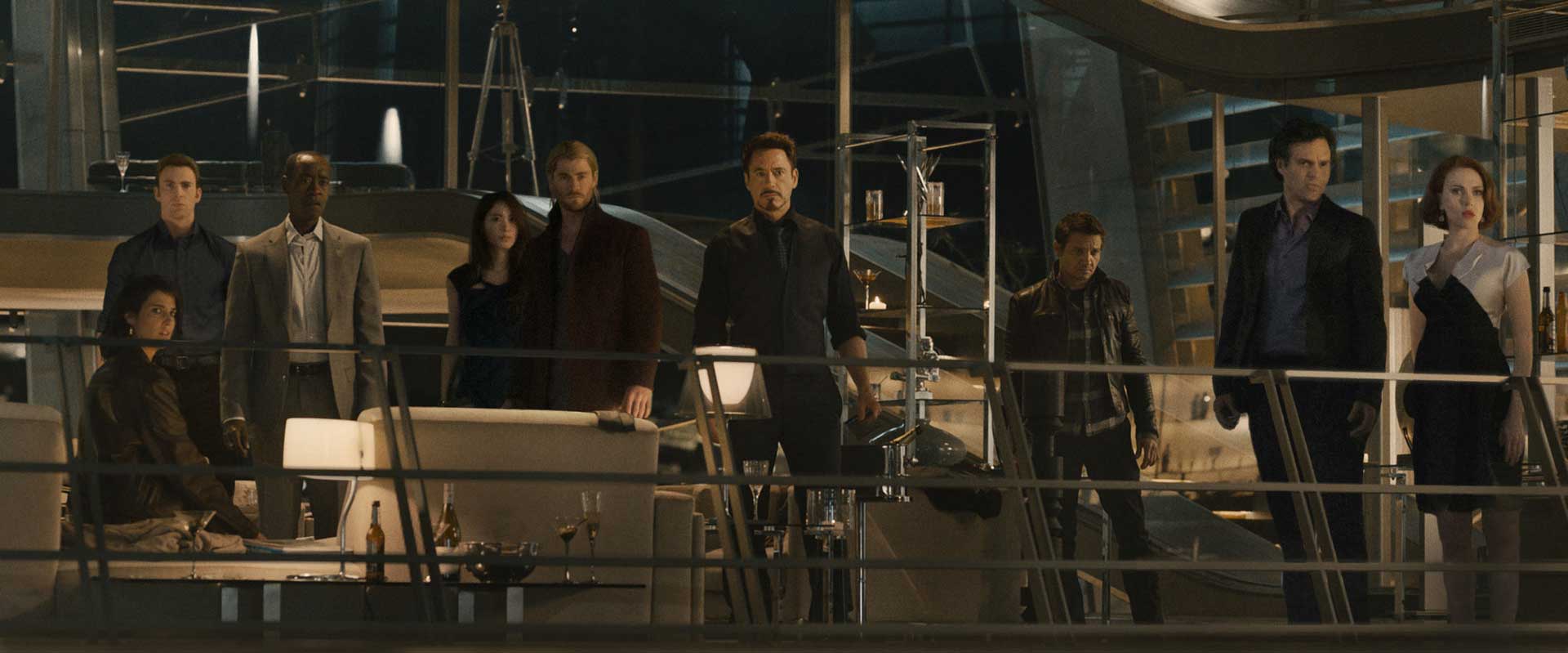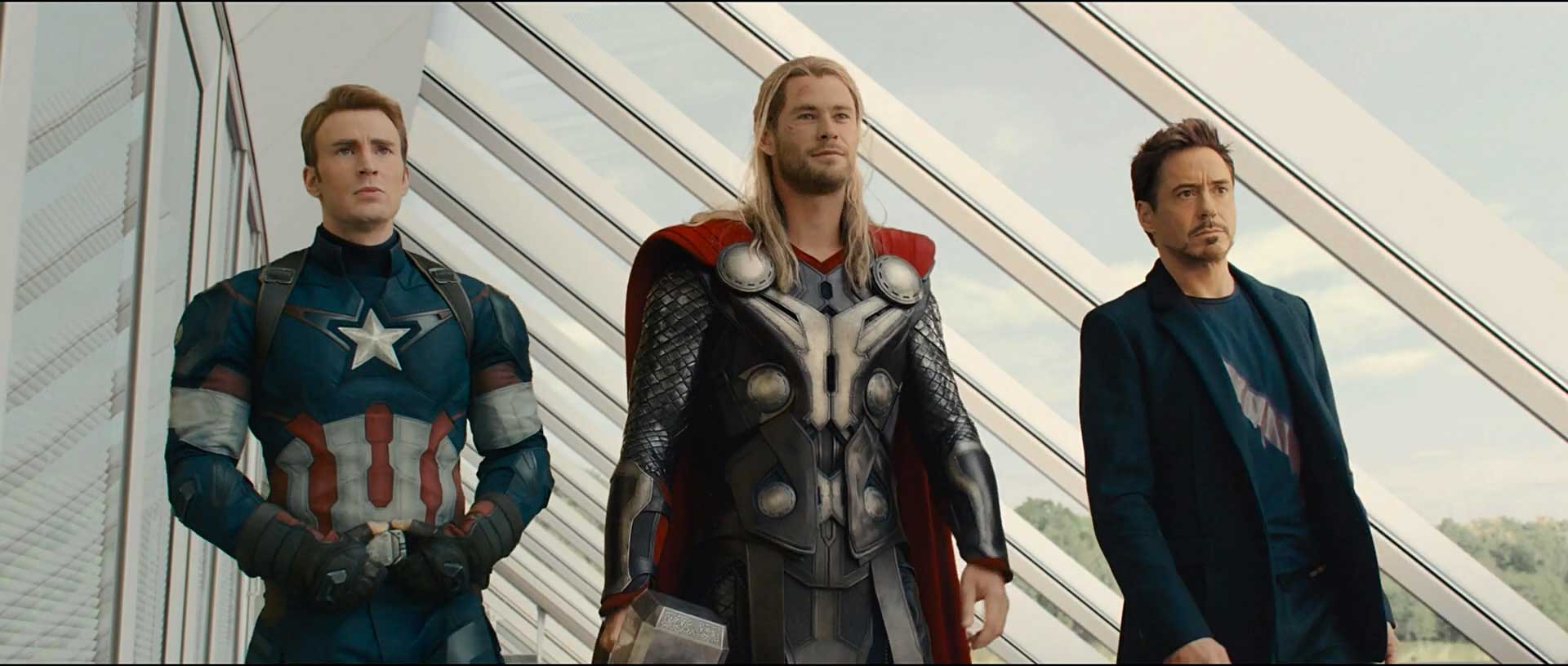Sequels have a general reputation of being bigger, stronger and more grandiose in their scale, especially when it comes to big-budget blockbuster movies. Sequels also garner a bad reputation of being functional, messier and risk-averse, preferring more of the same as opposed to diving into new territory. After delivering numerous sequels by this point that continued the stories of its characters, all eyes were on Marvel Studios when it began plotting the first team-up sequel to the first ever crossover team-up movie, at least on the level handled by the MCU.
Unlike sequels that change their crew though, Joss Whedon returned from The Avengers to both write and direct its part two. Wanting to make the movie smaller, more intimate and more personal to these characters, Whedon ended up delivering a spectacle regardless. How much of that was his own doing versus interference by Marvel executives to incorporate the obligatory expansive nature of an expected sequel to such a movie is unclear. What is clear though, is that Whedon tried his best to pepper the movie with aspects of character amidst all the commotion.
The result, Avengers: Age of Ultron, takes a beaten-to-death premise of an AI robot realizing that humanity is the enemy and layers it with dozes of wit, charm and character that make it stand out among the bevy of studio driven entertainment options. The titular robot, Ultron, is modeled after its creators’ personalities, borrowing his Shakespearean intelligence, sharp tongue and cheeky metaphors from his creator, Tony Stark. He thinks, he fights but most importantly, he feels. He cracks jokes, he laughs at his own jokes, and speaks almost too much like a human which makes him scary, exciting, dangerous and unpredictable.

There’s an interesting contrast throughout the movie between pro-Ultron and anti-Ultron Avengers and how they support their arguments. In the wake of a world post the Battle of New York, a distressed Tony Stark creates the megalomaniacal robot hoping to solve the problem proactively instead of responding to threats as and when they occur. As he snarkily stated in The Avengers, he’s attacking the situation upfront. His buddy Steve Rogers is exasperated that Stark would go on to jumpstart a project as big as this without consulting his fellow comrades. He’s seen first-hand, the consequences of people wanting to win a war before it even started and is vehemently opposed to the idea of Ultron. As the two spar jabs and words, the others largely sit it out in opposing camps though they have opinions or two of their own to jibe in.
It’s the character exchanges that really shine through in the premise of Age of Ultron. Whedon does a strong balancing act juggling an already huge ensemble of Avengers, adding two new supporting players in the Maximoff twins Wanda and Pietro with their own abilities and backstory, brings in supporting players from each of the solo movies in some capacity and yet, gives Black Widow, Hawkeye and the Hulk some more depth to their demons and delves into their psyches. It’s a tough act to juggle and it’s just too many things to balance out but Whedon ensures that everyone at least gets to have a strong moment that lingers long after the credits have rolled.
Besides the obvious distinction of being the first Avengers sequel, Age of Ultron retrospectively becomes the final Marvel movie directed by Joss Whedon. So exhausted would he be by bearing the responsibility of this juggernaut that he’d go on and retire from MCU movies after its release. It’s also the first MCU movie to feature a major character death. Sure a lot of supporting players died in the previous films and one could argue that Quicksilver was a supporting player as well but to date, he remains the only superhero to be slain fighting until the events of Infinity War. It was also the movie to balance the most characters in the Marvel ensemble until Infinity War arrived on the scene.

What’s perhaps the more important contribution of Age of Ultron is its intentions in spelling out the central meta narrative that’s at play across all these movies. Sure, fans have been intelligent enough to figure out the large game involving the Infinity Gauntlet ever since Thanos smirked in the mid-credits scene in The Avengers. We were also given hints and teases of the Infinity Stones at play. But it’s only Thor’s premonitions and Thanos grabbing his gauntlet at the end that perhaps most clearly spells out Marvel’s intentions leading up to Infinity War. Where this plot point had been implicit in the other movies, Age of Ultron is the first movie that makes it explicit. Yet another plot point Age of Ultron spells out clearly when it was merely hinted at in the other movies is the existence of Wakanda. We’ve seen Wakanda as far back as in Iron Man 2 but this is really the first time we hear about it from Banner’s mouth. Couple this with the importance of Vibranium in the central plot and the small role played by Ullysses Klaue in supplying it to Ultron and this is the first seeds of Black Panther being set up as much as 3 years before its release.
Finally, Age of Ultron also lays the foundation for driving a wedge between the Avengers. That rift is most prominent between Steve Rogers and Tony Stark who’re almost at loggerheads when exchanging barbs chopping logs of wood. Their differing ideologies toward handling global problems like alien invasions come to the forefront and would play a role in setting up their central conflict in the upcoming movie, which would have ramifications leading on to other movies that we’ll discuss in those pieces. While The Avengers saw the characters trade insults, Age of Ultron is where the differences reach a point and potential of becoming irreconcilable.
There’s no denying that Age of Ultron serves as an important bridge movie connecting Marvel’s phases and transferring characters from their smaller battles to focusing on the major conflict that lies ahead. As Thor pointed out, someone has been playing an elaborate game involving the six Infinity gems and it’s only a matter of time before that someone caught up with them. Between its contributions and the strong personality that Joss Whedon imbibes the movie with, Age of Ultron remains an excellent Avengers film that has a soul of its own that a lot of other superhero fare fails to grasp. It’s a shining example of conceding to a studio’s blockbuster needs while still managing to infusing some semblance of art into what could have otherwise been a summer action popcorn flick.





